Photographs: Krishnendu Halder/Reuters Savera R Someshwar
'The camps were never given any help from the UP government. They did not provide rations, milk, medical assistance or sanitary arrangements... Nothing.'
'Once the compensation payments started being made, the UP government's entire effort was to get the people out of the camps.'
'The situation was compounded by the fact that those accused of murder, arson and rape were not arrested. How could the victims be expected to return to their village homes?'
'The extreme cold made the situation even more appalling. The deaths occurring regularly were a result of this.'
Former MP Subhashini Ali discusses the horrific Muzaffarnagar riots and its tragic aftermath with Rediff.com's Savera R Someshwar.
The horrific Muzaffarnagar riots were not just a clash between members of two different communities.
It was not just a failure of an administration that tried to control the unfolding events.
The riots, alleges Communist Party of India-Marxist leader Subhashini Ali, were carefully engineered by a political party looking to further its base in Uttar Pradesh.
Contributing to the barbaric turn of events, which shook even the most hardened observers, was an apathetic state government, which stepped back and refused to do anything to stem the bloodbath or aid its tragic human aftermath, says Ali, who can be as fiery as her mother, the late legend, Colonel Lakshmi Sehgal of Netaji Subhas Chandra Bose's Indian National Army.
Ali, president of the All India Democratic Women's Association, spoke with Rediff.com's Savera R Someshwar.
Do you believe the Muzaffarnagar riots were a calamity waiting to happen?
No. I believe that they happened because the BJP (Bharatiya Janata Party needs a big increase in its Lok Sabha seats to achieve its stated aim of forming the next government at the Centre.
This is can only happen if their seats in Bihar and Uttar Pradesh increase dramatically.
For this to happen, heightened communal polarisation is a must.
Muzaffarnagar and its adjacent districts in western UP have been witnessing a series of communal incidents since the last eight months.
In all of these, the issue has been the relations between Muslim males and Hindu females.
While some of these cases have been real, many have been just rumours.
Several clashes have occurred over this period.
This part of UP is an attractive target for the BJP because the dominant caste is not committed politically and electorally to any one political party.
Kindly ...
'Muzaffarnagar has seen a rise in Hindutva politics'
Image: Soldiers stand guard on a deserted street during a curfew in Muzaffarnagar.Photographs: Reuters Savera R Someshwar
Based on your experience, what was the relationship like between the Hindus and Muslims in the area? How and why did it change?
For decades, there have been close social links between the two communities. Agriculture used to be the primary source of income for both communities, so that also strengthened the relationship between the two.
Muzaffarnagar was one of the few places that did not experience communal violence during Partition.
Many of the Muslims here accept the fact that they are Hindu converts and maintain strong ties with their Hindu caste brethren.
Chaudhary Charan Singh, the most important political leader from the area who became the state's chief minister and then the prime minister of India, built a strong coalition of peasant communities.
Within this, he stressed on Hindu-Muslim unity.
The huge peasant mobilisations for remunerative prices organised by Mahindra Singh Tikait also stressed the importance of this unity.
For over two to three decades, Muslim and Hindu farmers participated in joint struggles which lasted weeks and months, during which they actually stayed together at the place of the dharna and ate together.
Over the years, this has changed. Agriculture is no longer the primary means of livelihood for many in the area and there has been a shift to urban areas.
As a result, the economic connection, or dependency, between the communities has reduced, which has weakened the bond between them.
Muzaffarnagar, and the places around it, have seen a rise in Hindutva politics, which has also had a negative impact on the relationship between the two communities.
Kindly ...
'The rioters's worst instincts have been deliberately aroused and fanned'
Image: A survivor weeps inside her home that was burnt during the riots.Photographs: Amit Dave/Reuters Savera R Someshwar
What is it about the Muzaffarnagar riots, and the manner in which they took place, that worries you the most?
The fact that they occurred in rural areas, which is very unusual.
Do you believe politics has no value for human life... that the ordinary human being will be at stake each time a certain political equation finds itself in trouble?
I differentiate between the kind of politics practised by different political parties.
There are parties whose very basis is communal, like the BJP.
Then, there are many different bourgeois parties or parties that are committed to the capitalist system.
These parties profess secularism, but their responses to riots are generally anti-minority.
There are variations within this spectrum.
It is only the Communist parties that are not just committed to communal harmony, but have also ensured communal peace whenever and wherever they have formed governments.
The question talks about value for human life. This is something beyond communal riots.
Definitely, parties that represent the exploiting classes resort to violence against workers, peasants, poor people and Dalits to protect the status quo.
While their governments are oppressive and partisan in general, when groups of the exploited organise (themselves and demand) for their rights, they (the governments) resort to violence of all kinds.
The people who participated in the mass killings, the rapes and the atrocities on the minority community... do you believe they had been manipulated in any way?
Their worst instincts have been deliberately aroused and fanned.
Weapons, money and liquor were also distributed.
Kindly ...
'Arms were brandished and vicious speeches given -- all in full view of the police'
Image: A woman and her child, who were injured in the communal clashes, in a Muzaffarnagar hospital.Photographs: Reuters Savera R Someshwar
What makes human beings who have been living amicably with each other for generations turn against each other in such a vicious manner?
We have witnessed sustained campaigns of communal polarisation over the last few decades and these have definitely poisoned our social relationships.
Western UP is no exception to this general phenomenon.
But riots are engineered deliberately -- and are always political.
This background of polarisation is the setting in which vicious and often absurd rumours are used to inflame passions.
In this case, over the last year, Muzaffarnagar and its adjacent districts have witnessed a regular succession of incidents in which young Muslims have been targeted because of their real or alleged relationships with Hindu girls.
There are public statements by RSS (the Rashtriya Swayamsewak Sangh) and VHP (Vishwa Hindu Parishad) workers that bear this out.
This statement made by Chandra Mohan Sharma, joint general secretary of the Meerut division of the VHP, in The Hindu, is one such example.
Here, he calls 'love jihad' the new weapon against Hindus.
The training for this, he says, is conducted in madrasas.
'First, good-looking Muslim men are identified. They are given neutral names like Sonu and Raju.' These boys, Mr Sharma says, are then given jeans, t-shirts, mobiles, and bikes and taught to behave.
'They stand in front of schools and colleges and woo young Hindu girls. The first few times, our girls snub them.' But then, he says resignedly, they fall for it.
'This jihad is about pyar se fasaana (entrapment through love).'
'Look at police records. Out of 100 girls who elope, 95 are Hindus who go with Muslim men. It is rare that Hindu boys get Muslim girls.'
This, the VHP leader says conclusively, is proof of a conspiracy to 'expand Muslim population, using Hindu girls as machines. We need to protect the honour of our girls' (Read the full report here (external link))
The atmosphere was vitiated (in this manner) over months.
There were several attacks at Lisadh.
The administration did do the required fire-fighting, but there was no attempt to curb this campaign and punish those responsible for it.
The events of August 27, when first a young Muslim, Shahnawaz and then two young Jat cousins, Gaurav and Sachin, were murdered were used to incite violence against the minority community.
People were given to understand that the incident had occurred over eve-teasing of the Jat boys's sisters when actually the FIR does not mention this.
The two murdered boys were held up as martyrs to the cause of saving the honour of Hindu/Jat daughters and daughters-in-law.
It can be imagined how this campaign, accompanied by distribution of arms, money, liquor and inflammatory speeches, could result in the violence that took place on September 8.
The situation was aggravated by the fact that the Muslim boys (except one) who were arrested on August 27 were released due to political intervention and that the senior superintendent of police and district magistrate were transferred the next day.
Administrative failure was now total.
Provocative acts and speeches at the condolence meeting for Sachin and Gaurav, and then at the Friday prayers, went unopposed.
At the Mahapanchayat that took place at Lisad village (the scene of gory violence on September 8) on September 5, and at the Mahapanchayat on September 7, violence was openly advocated.
Arms were openly brandished and vicious speeches were given -- all in full view of the police and administration.
There was no attempt to enforce Section 144 (of the Indian Penal Code under which one cannot join an unlawful assembly armed with deadly weapons).
There were clashes on the way to and from the Mahapanchayat held on September 7 in which Muslims and Jats both lost their lives.
Kindly ...
'The conditions in the camps have been appalling from the very beginning due to the state government's apathy'
Image: A boy at a relief camp.Photographs: Ahmad Masood/Reuters Savera R Someshwar
Do relationships between Hindus and Muslims have a different hue in rural and urban areas?
One cannot generalise about this. After all, people have been living together for hundreds of years in cities, towns and villages.
They are not killing each other or feeling a sense of hatred for each other all the time.
Riots and communal violence are politically motivated and planned. Prejudice and suspicion are taken advantage of.
Congress Vice-President Rahul Gandhi, during his visit to the camp, has urged the victims to return home. Is this the right advice for them?
Given the conditions under which they were forced to leave their homes, and the fact that the perpetrators of violence and arson are still at large, his advice was ridiculous.
The state government wants to shut down the camps. Is this, in your opinion, the right thing to do at this point in time?
Absolutely not.
The condition in the camps is abysmal... What are the worst things that are happening there and how can things change?
The conditions in the camps have been appalling from the very beginning due to the apathy of the state government.
This became the policy of the district administration as well.
The camps were never given any help from the government.
They did not even provide rations, milk, medical assistance or sanitary arrangements... Nothing.
These facilities, and the help that was given, came through community members with help from Muslim organisations and some NGOs and by political parties like CPI-M and the Congress.
Once the compensation payments started being made, the government's entire effort was to get the people out of the camps.
This was inhuman because the number of people being paid compensation was nowhere near the number of people in the camps.
The situation was compounded by the fact that those accused of murder, arson and rape were not arrested.
How could the victims be expected to return to their village homes?
The weather conditions of extreme cold made the situation even more appalling.
The deaths and illnesses that were occurring regularly were a result of this.
The insensitive comments of Samajwadi Party leaders (the party runs the government in UP) and administrative officers are indicative of their callous and criminal approach.
Now, many of the camps have been dismantled, but the victims are still living in makeshift shelters or with relatives or sympathetic villagers.
Kindly ...
'Most of the violent attacks occurred in areas which traditionally voted for non-BJP parties'
Image: A tear gas shell fired by riot police explodes near the arsonists.Photographs: Krishnendu Halder/Reuters Savera R Someshwar
Do you believe Pakistan had a hand in inflaming an already tense situation?
No.
Could the riots that took place in Muzaffarnagar have been averted?
Yes, if the government and the administration had reacted promptly and firmly.
Was there a gameplan behind the riots?
Yes.
Could you please elaborate?
The gameplan becomes very clear that the three deaths on August 27 and the Mahapanchayat and violent clashes of September 7 all took place in and around the Jansath tehsil.
Post that, there were no incidents in this entire area. There were no attacks on Muslims in these and many other villages.
It is interesting to note that the constituencies of the sitting BJP MLAs also remained peaceful.
Most of the violent attacks occurred in the Budhana constituency, which has traditionally voted for non-BJP parties, and in the areas around it which are now part of the new district of Shamli and of Baghpat.
These are areas in which the BJP needs to extend its influence if it is to increase its tally significantly in the 2014 Lok Sabha elections.
Who are the biggest culprits responsible for what happened? What action should be taken against them?
Those who planned the riots, distributed money, liquor, etc, indulged in hate speeches and rumour mongering and initiated the sending of videos that were false but very inflammatory must be exposed and prosecuted.
All those who have committed crimes like murder, rape and arson must be punished according to the law.

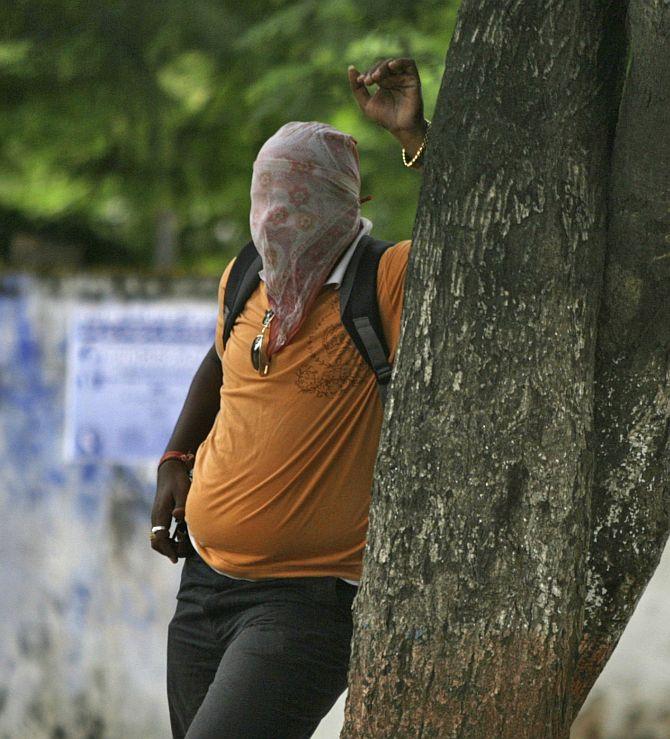

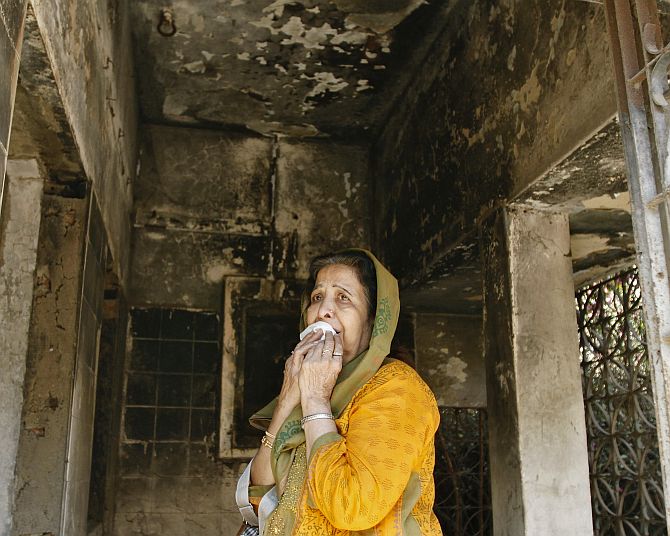
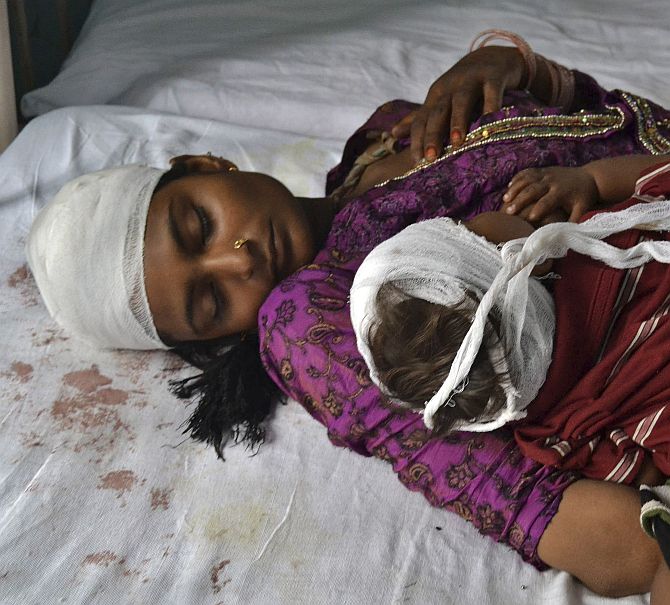
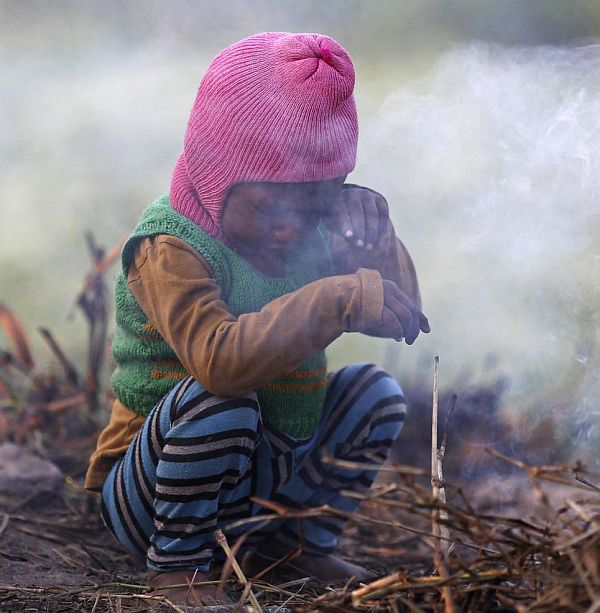
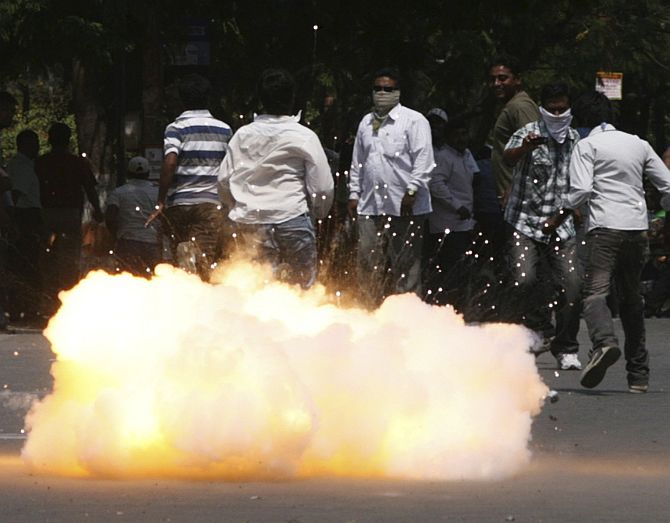
article